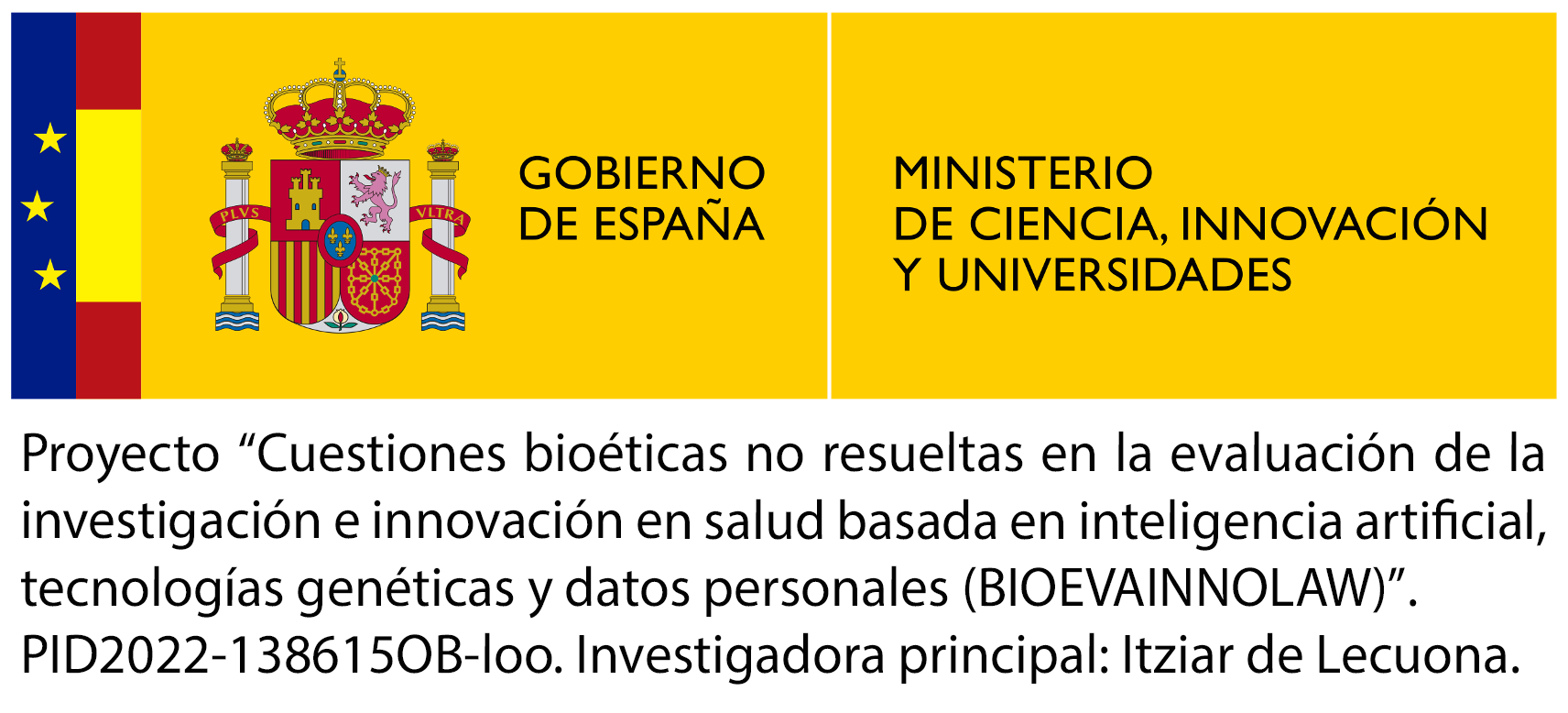The role of empirical sciences in the law: the status of the human embryo
DOI:
https://doi.org/10.1344/rbd2018.0.19497Keywords:
human embryo, law and science, onset of human personhoodAbstract
In this paper, I consider two opposite judicial decisions concerning the legal status of the human embryo: “Portal de Belén” by the Argentine Supreme Court, and “Artavia Murillo” by the Inter-American Court of Human Rights. My purpose is to show that, although both decisions defend opposite positions, they commit the same kind of mistake. Both seek to ground a position about the legal status of the human embryo on biological considerations on embryo development. Highlighting this kind of argumentative failure can be useful for the analysis of judicial decisions with bioethical import.
References
Artavia Murillo y otros (“Fecundación in Vitro”) vs. Costa Rica, en http://www.corteidh.or.cr/docs/casos/articulos/seriec_257_esp.pdf (al 31/10/2016).
Basterra, M. 2002, “Prohibición de la píldora del "día después"; un lamentable retroceso del principio de autonomía personal”, Jurisprudencia Argentina.
Bergallo, P. 2010, “El debate jurídico en torno a la anticoncepción de emergencia: una mirada comparada”, en: Arilha, Souza Lapa y Crenn Pisaneschi (coords.), Contracepção de Emergência no Brasil e América Latina: Dinâmicas Políticas e Direitos Sexuais e Reprodutivos. Coleção Democracia, Estado Laico e Direitos Humanos de la Comissão de Cidadania e Reprodução, São Paulo, Oficina Editorial (pp. 9-62).
Fermandois, A. 2004, “La píldora del día después: aspectos normativos”, Estudios Públicos, 95, 91-118.
Medina, G. 2002, “Bioética, libertad sexual y derecho (Libertad de elección sexual, libertad de contracepción, libertad de cambio de sexo. Límites y responsabilidades)”, Jurisprudencia Argentina, 21.
Moore, G. E. 1993, Principa Ethica. Cambridge: Cambridge University Press.
Palma, M. y Palma, S. 2007, “Algunas Consideraciones Legales y Sanitarias sobre “La Píldora del Día Después” en Argentina”, Latin American Journal of Pharmacy, Vol. 26, pp. 307-13.
Portal de Belén - Asociación Civil sin Fines de Lucro c/ Ministerio de Salud y Acción Social de la Nación s/ amparo," CSJN (Argentina), en http://www.saij.gob.ar/corte-suprema-justicia-nacion-federal-ciudad-autonoma-buenos-aires-portal-belen-asociacion-civil-sin-fines-lucro-ministerio-salud-accion-social-nacion-amparo-fa02000003-2002-03-05/123456789-300-0002-0ots-eupmocsollaf (al 25/09/2017).
Rivera López, E. 2013, “Conception, Fertilization and the Onset of Human Personhood. A Note on the Case Artavia Murillo et al. v. Costa Rica”, Inter-American and European Human Rights Journal, 2013-1, 54-60.
Rodríguez, M. 2007, “Entre la justicia real y la justicia formal: la discriminación por género en la jurisprudencia de la Corte Suprema de Justicia de la Nación Argentina”, en Alegre, M. y Gargarella, R. (comp.), El derecho a la igualdad. Aportes para un constitucionalismo igualitario. Buenos Aires: Lexis Nexis (pp. 273-311).
Downloads
Published
How to Cite
Issue
Section
License
 The author retains the copyright and grants Revista de Bioética y Derecho the right of first publication of the article. All articles published in Revista de Bioética y Derecho are under Creative Commons licensing Recognition – Non Commercial – NoDerivedArtwork (by-nc-nd 4.0), which allows sharing the content with third parties, provided that they acknowledge its authorship, initial publication in this journal and the terms of the license. No commercial use of the original work or generation of derivative works is permitted.
The author retains the copyright and grants Revista de Bioética y Derecho the right of first publication of the article. All articles published in Revista de Bioética y Derecho are under Creative Commons licensing Recognition – Non Commercial – NoDerivedArtwork (by-nc-nd 4.0), which allows sharing the content with third parties, provided that they acknowledge its authorship, initial publication in this journal and the terms of the license. No commercial use of the original work or generation of derivative works is permitted.







